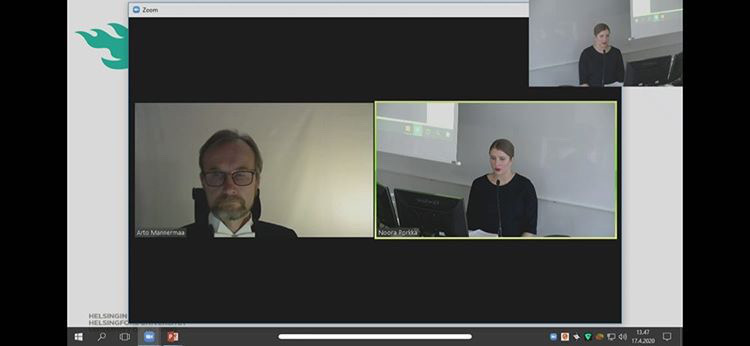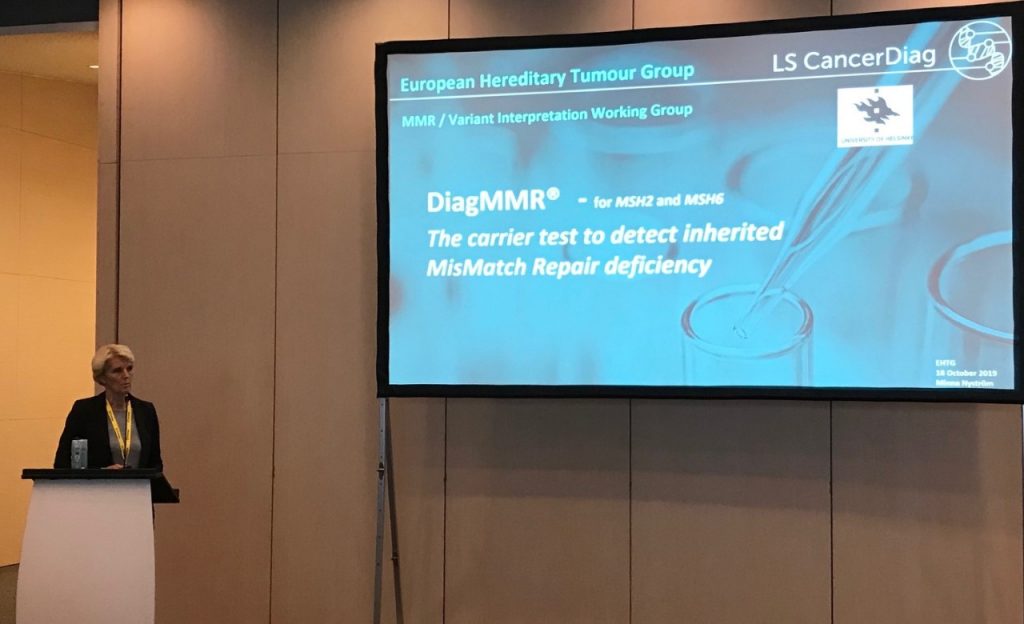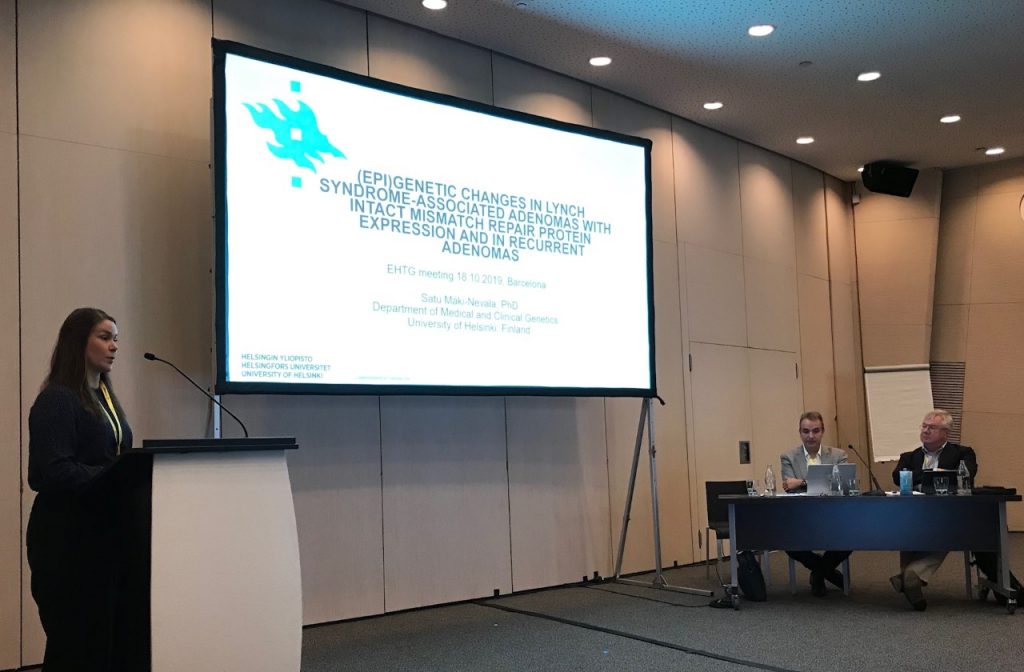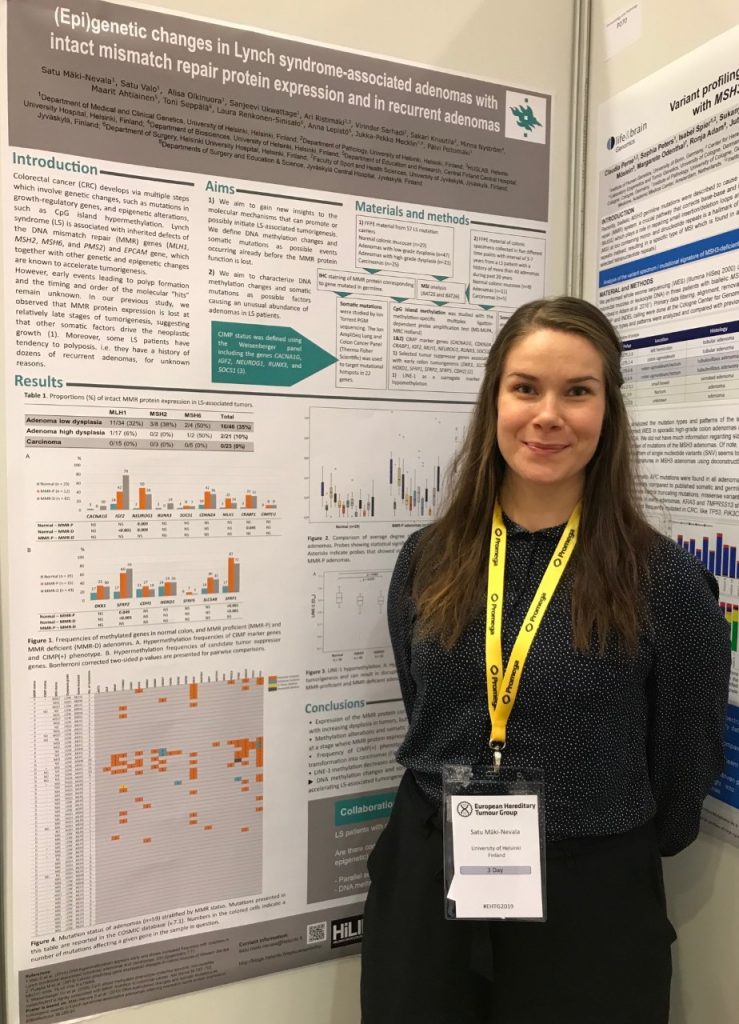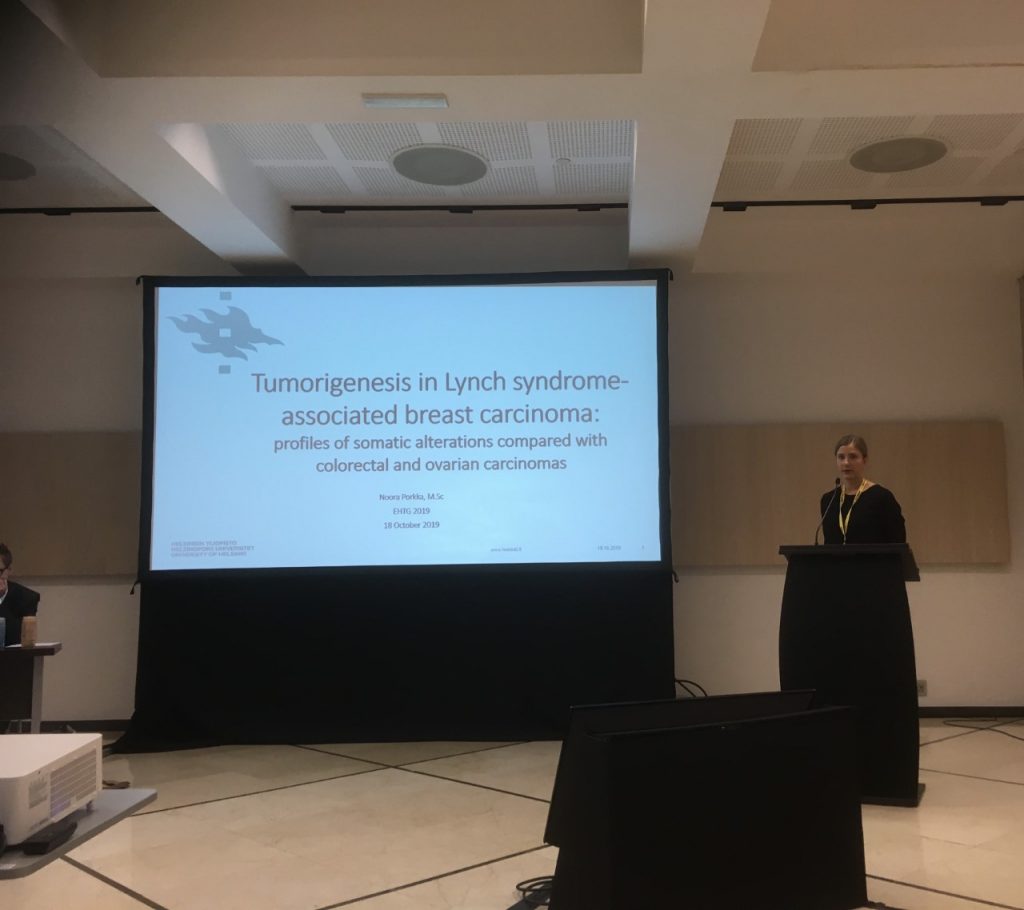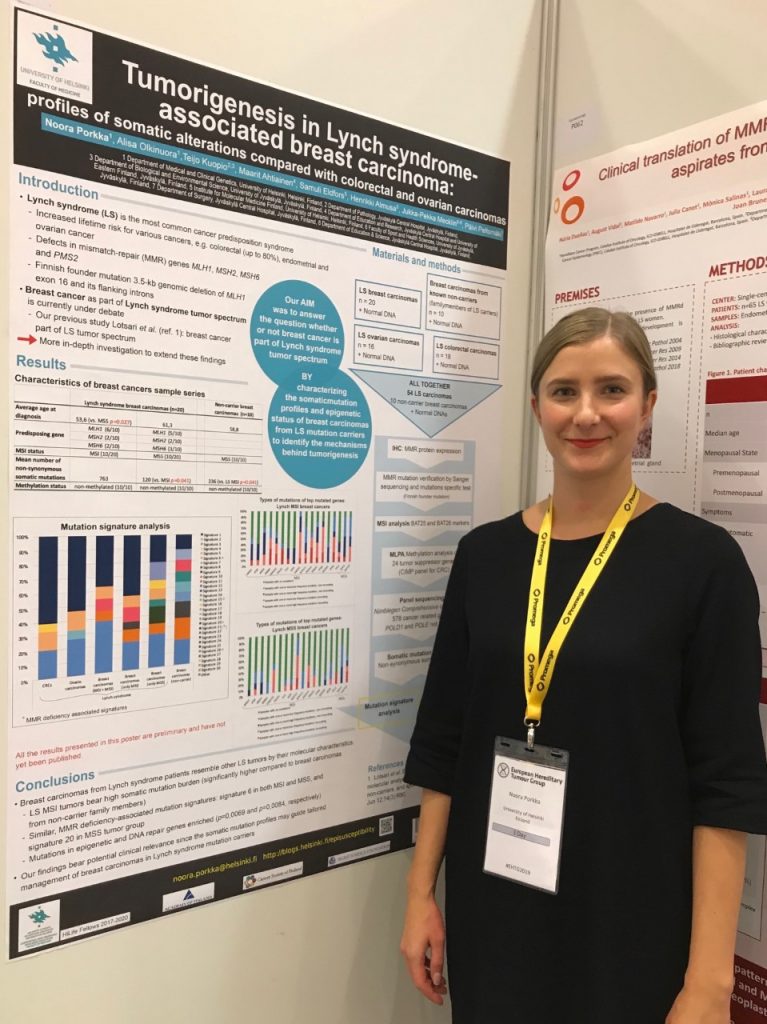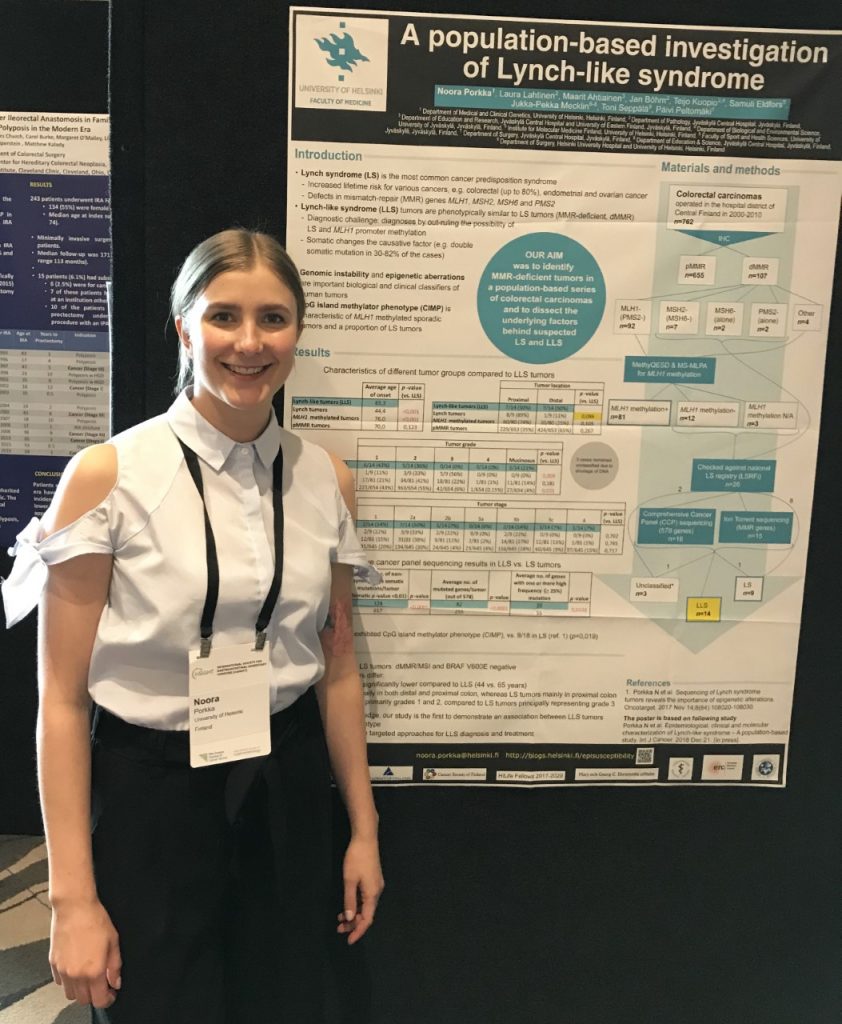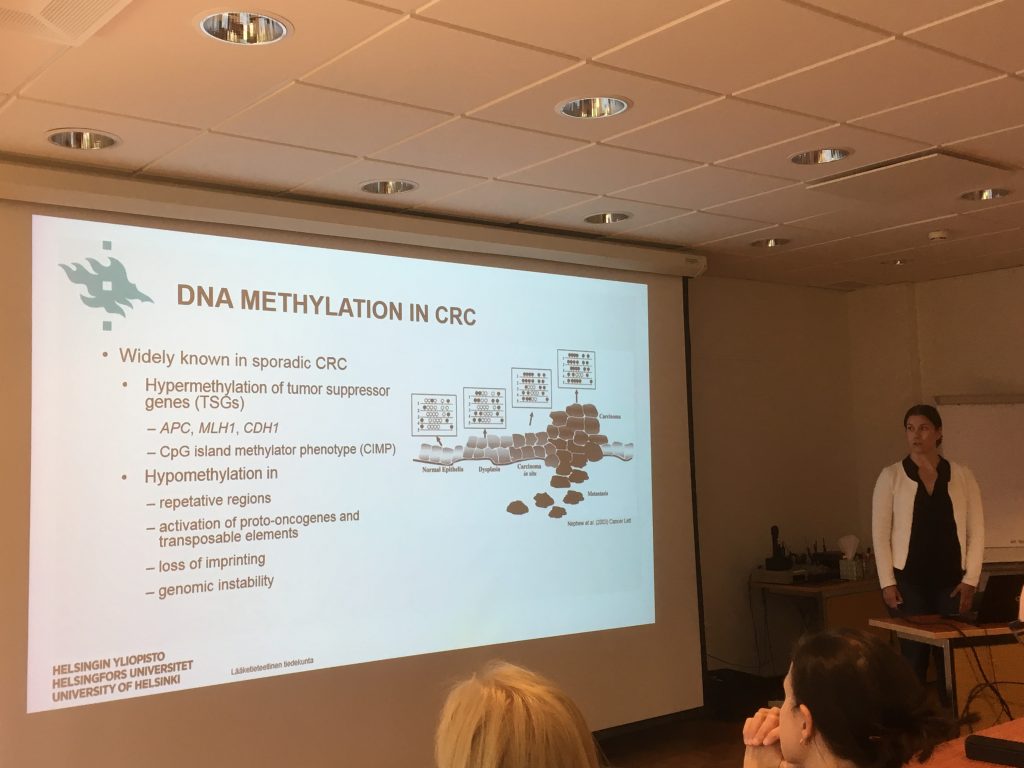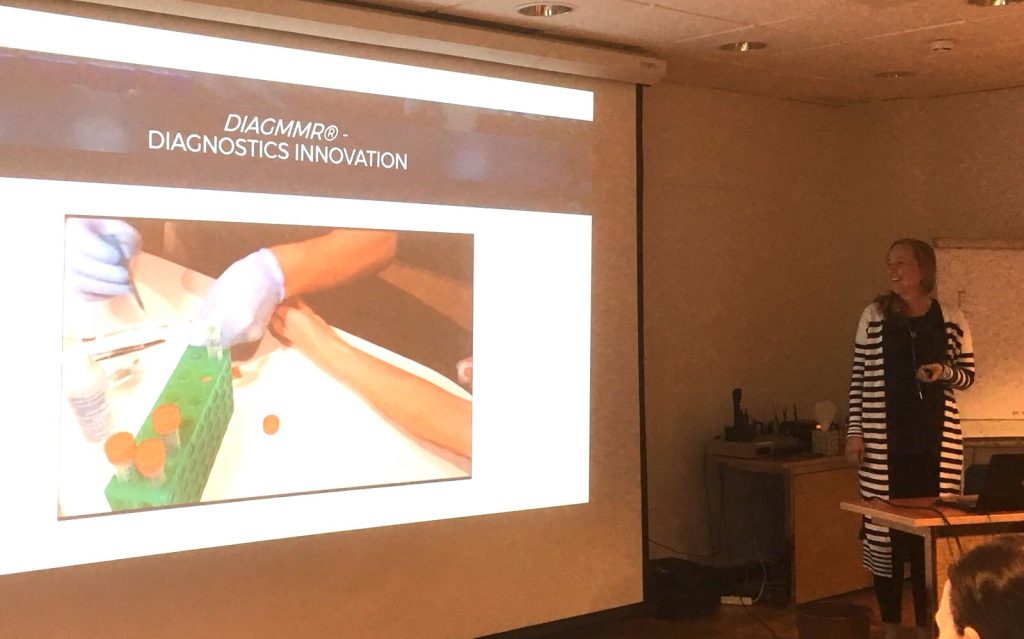Olkinuora A, Gylling A, Almusa H, Eldfors S, Lepistö A, Mecklin J P, Nieminen T T., & Peltomäki P.
Some 10-50% of Lynch-suspected cases with abnormal immunohistochemical (IHC) staining remain without any identifiable germline mutation of DNA mismatch repair (MMR) genes. MMR proteins form heterodimeric complexes, giving rise to distinct IHC patterns when mutant. Potential reasons for not finding a germline mutation include involvement of an MMR gene not predicted by the IHC pattern, epigenetic mechanism of predisposition, primary mutation in another DNA repair or replication-associated gene, and double somatic MMR gene mutations. We addressed these possibilities by germline and tumor studies in 60 Lynch-suspected cases ascertained through diagnostics (n = 55) or research (n = 5). All cases had abnormal MMR protein staining in tumors but no point mutation or large rearrangement of the suspected MMR genes in the germline. In diagnostic practice, MSH2/MSH6 (MutS Homolog 2/MutS Homolog 6) deficiency prompts MSH2 mutation screening; in our study, 3/11 index individuals (27%) with this IHC pattern revealed pathogenic germline mutations in MSH6. Individuals with isolated absence of MSH6 are routinely screened for MSH6 mutations alone; we found a predisposing mutation in MSH2 in 1/7 such cases (14%). Somatic deletion of the MSH2-MSH6 region, joint loss of MSH6 and MSH3 (MutS Homolog 3) proteins, and hindered MSH2/MSH6 dimerization offered explanations to misleading IHC patterns. Constitutional epimutation hypothesis was pursued in the MSH2 and/or MSH6-deficient cases plus 38 cases with MLH1 (MutL Homolog 1)-deficient tumors; a primary MLH1 epimutation was identified in one case with an MLH1-deficient tumor. We conclude that both MSH2 and MSH6 should be screened in MSH2/6- and MSH6-deficient cases. In MLH1-deficient cases, constitutional epimutations of MLH1 warrant consideration.
Keywords: DNA mismatch repair; Lynch syndrome; colorectal cancer; deep sequencing.
Cancers (Basel) 2020 Jul 9;12(7):E1853.
PMID: 32660107
